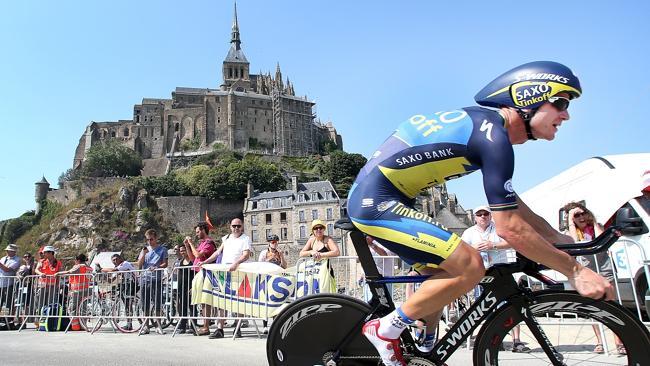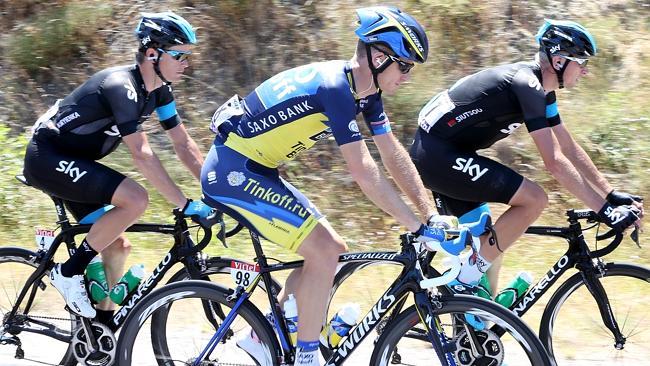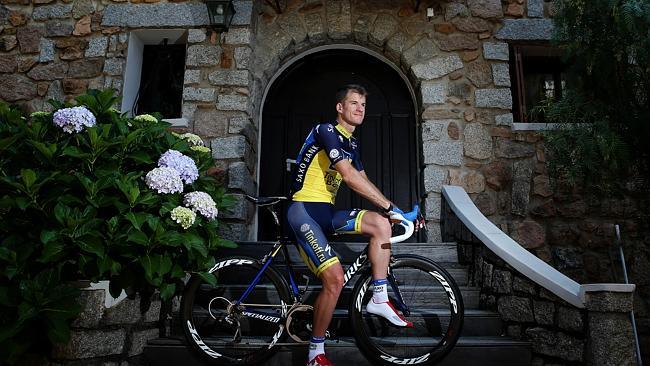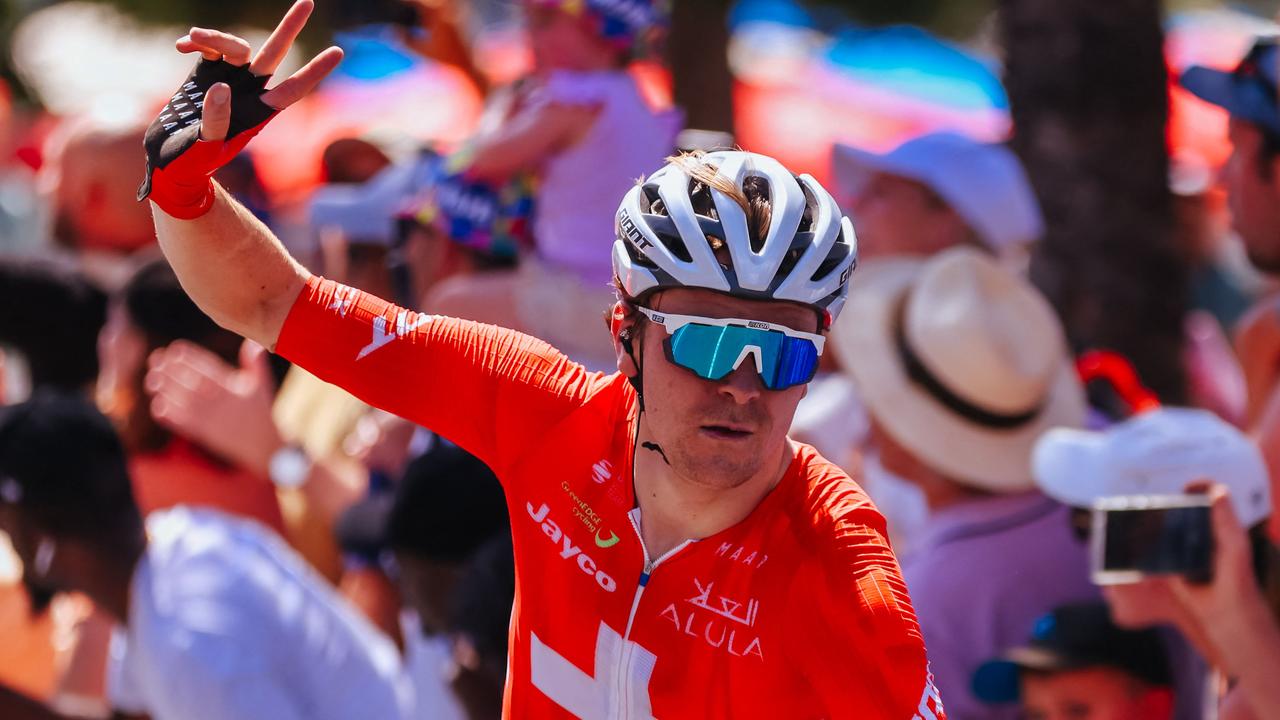Michael Rogers must prove his innocence after positive clenbuterol test
MICHAEL Rogers must produce evidence of contaminated food or join Australian cycling's rapidly growing doping rogue's gallery.

Cycling
Don't miss out on the headlines from Cycling. Followed categories will be added to My News.
STAR rider Michael Rogers must produce evidence of a contaminated meal or join Australian cycling's rapidly growing doping rogue's gallery.
The triple world time trial champion has been provisionally suspended by the UCI for what cycling's governing body said was an "adverse analytical finding" of clenbuterol.
The trace was found in a urine sample taken after a race Rogers won in Japan on October 20.
Clenbuterol, known to increase aerobic capacity in humans, is commonly used in livestock in countries like China and Mexico to create leaner meat.
Rogers, who turns 34 on Friday, competed in China at the Tour of Beijing only five days before testing positive. He has told his team, Saxo-Tinkoff, that he unknowingly ingested the substance.
It is understood Rogers was to be named in Saxo-Tinkoff's team for next month's Tour Down Under in Adelaide, but those plans are on hold.
Superstar Australian rider Stuart O'Grady, Orica-GreenEDGE team leader Matt White and former Cycling Australia vice-president Stephen Hodge have all admitted doping in the past 14 months.
In Rogers' favour is the fact Belgian Jonathan Breyne also tested positive for clenbuterol on November 5 at the Tour of Taihu Lake, also in China.

Both riders are awaiting the result of their B samples.
But former ASADA chairman Richard Ings said the Rogers camp faced an uphill climb to provide enough factual evidence to escape a two-year ban.
"He'll have to go back to where he believed he ate. He'll need to have samples of the meat tested and he'll have to prove it," Ings said.
"It now falls to Rogers to provide a corroborated and substantiated defence ... everyone says 'I didn't mean to do it' and 'Oh, it must have been something I ate'."
So concerned was WADA by the use of clenbuterol in livestock in some countries that it warned athletes two years ago to show caution and to only eat in "restaurants and cafeterias that have been approved by your federation and/or event organiser".
Professional cycling squads travel to big races with a team chef they can trust, but it is not known whether Saxo-Tinkoff took their chef to the smaller Tour of Beijing or Japan Cup this year.

Ings said it was entirely possible Rogers was the victim of carelessness only.
"At the end of the day he's got a positive test for a very serious doping substance, but there are explanations available for how that substance could get into his body," he said.
"I think it needs to be reported very cautiously because clenbuterol is very old school doping. It's a long-acting, steroid-like substance which stays in the body a really long time and it's incredibly easy to detect in testing.
"If you were going to dope with anything, clenbuterol would be one of the last things you would go with."
Born in Barham on the NSW-Victoria border, Rogers has carved out a glittering career based on a talent for racing against the clock.
Rogers was the world time trial champion three years in a row from 2003-2005.
He finished ninth overall in the 2006 Tour de France and has won the Tour Down Under and Tour of California.
Rogers has admitted to working with now banned doctor Michele Ferrari in the mid-2000s, but says he never used drugs.
Ferrari was banned for life in July last year by the US Anti-Doping Agency as part of its investigation that ultimately brought down Lance Armstrong.


